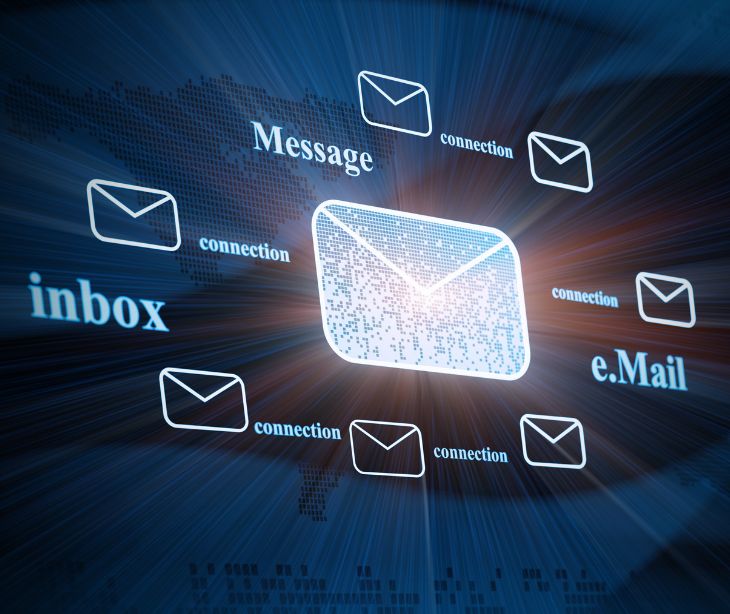
When it comes to the HIPAA Act, healthcare organizations must retain certain electronic communications for a specific duration (usually at least six years). This includes emails that contain protected health information (PHI). Training healthcare staff on HIPAA email regulations, such as retention, improves adherence to the act’s rules. Healthcare organizations can follow the steps in this guide to effectively train healthcare staff on HIPAA email retention.
Learn about: HIPAA compliant email: The definitive guide
HIPAA documentation requirements
The HIPAA Privacy Rule establishes the framework for healthcare organizations to safeguard and keep health-related documentation. The rule requires covered entities to maintain accurate and up-to-date documentation of health files, such as:
- Privacy-related policies and procedures
- Employee training records
- Any communication containing PHI
- Documentation of PHI disclosures
- Incident responses and breach notifications
- Actions taken to ensure HIPAA compliance
Organizations must retain documentation of PHI disclosures for a minimum of six years. Maintaining records beyond the minimum required period may be advisable to address potential legal, operational, or clinical needs.
HIPAA and an email retention policy
HIPAA outlines requirements for the retention, security, and accessibility of electronic communications, including emails, that contain PHI. The act encourages the implementation of technical, physical, and administrative safeguards, including email retention policy.
An email retention policy ensures that data is available for audits, legal proceedings, and compliance requirements. Within the document, organizations must identify the policy scope, the retention period (e.g., HIPAA’s six-year mandate), and where/how the data is stored and archived. To demonstrate proper retention and compliance, providers must also:
- Choose a HIPAA compliant email platform (like Paubox) that will sign a business associate agreement (BAA)
- Create and follow backup and recovery procedures and policies
- Monitor staff email usage and audit email logs
- Conduct regular risk assessments to continuously update policies and procedures
Finally, healthcare organizations must also train healthcare staff on HIPAA email requirements.
What happens if healthcare staff is not properly trained?
An unsecured email puts patients and their information at risk. For an organization, a breached email could lead to costly penalties, shutdown services, and damage to a healthcare provider’s reputation. Of the 909 breaches currently under investigation on the U.S. Department of Health and Human Services (HHS) Breach Portal, 178 (19.6%) list the location of the breach as email.
Failure to train staff on HIPAA compliant email poses tangible risks to healthcare organizations, their employees, and their patients. Real risks include:
- The heightened possibility of PHI being sent to the wrong person and/or part of a larger unsecured breach
- Misunderstandings about patient access and sharing permissions among staff
- Extra time spent fixing organizational inefficiencies, correcting mistakes, or reporting breached emails
- An increase in staff stress and a decrease in job satisfaction
See also: The role of employee education in email security for healthcare organizations
Steps to train staff on email retention
Providing training and support to healthcare staff enhances email proficiency and HIPAA familiarity. Equipping employees with the skills for compliant email communication minimizes breaches, misunderstandings, and potential errors. By following the steps below, healthcare organizations can demonstrate that they did all they possibly could to diminish the opportunity for human error.
Identify staff to train
Start by identifying staff who require HIPAA training on using email and handling or accessing PHI. Examples of employees to consider include doctors, nurses, administrative staff, IT personnel, receptionists, and records management staff. The material should be customized to specific roles and responsibilities while an organization should understand that all employees need email safety training.
Set up the training program
Decide if the training will be done within or by a third party known for conducting HIPAA email training. Then, determine the content to cover: HIPAA email compliance, patients’ rights to PHI, the minimum necessary standard, in-house email policies and procedures, email breach issues, employee email responsibilities, and email retention needs. Define the objectives and desired outcomes of the training program.
Look at how to present the material, such as practical examples and case studies, to illustrate how HIPAA compliance applies to staff. Include such training methods as presentations, handouts, interactive modules, videos, and/or workshops. Try to incorporate interactive elements like quizzes, discussions, or real-life scenarios to enhance engagement and knowledge retention.
Conduct the training
Establish a training schedule that accommodates staff availability and allows everyone to participate. Keep staff engaged and adapt as needed. Staff should leave the training sessions understanding the:
- Types of communication to retain
- Retention period required
- In-house policy on retention that outlines the purpose, scope, and responsibilities
- Controls used to secure storage, archive emails, and maintain audit logs
- Protocols for proper disposal and destruction
- Identification and handling of PHI
- Internal email policies and procedures
- Management of patient authorizations and requests
Go beyond HIPAA email requirements and include general information about HIPAA. Make sure that employees leave training with knowledge about HIPAA and its importance to proper patient care.
Assess and evaluate the training
After training, conduct regular assessments to gauge staff comprehension and identify areas for improvement. Seek feedback from staff on the training content, delivery, and relevance to their roles. Monitor staff adherence to email policies through regular audits, spot checks, or incident reporting to ensure the program’s effectiveness.
Maintain HIPAA email compliance through continuous training
HIPAA email training should be performed as often as possible based on the assessment. Consider how long the training might be good for and when a refresher might be needed. It may also be helpful to encourage staff to stay updated on HIPAA independently through self-education, newsletters, or online resources.
By fostering a culture of accountability and adherence to HIPAA email policies, staff learn the importance of maintaining PHI security even when such sensitive information is shared by email.
FAQs
Is email communication in healthcare secure?
Email communication in healthcare can be secure if proper encryption and security measures are implemented. Healthcare organizations must use secure email platforms, encrypt emails containing PHI, and ensure compliance with HIPAA regulations to safeguard patient privacy.
Can I send unencrypted emails containing PHI?
While the HIPAA Security Rule does not expressly prohibit the use of email for sending ePHI, covered entities must implement policies and procedures to protect the security and privacy of ePHI. Secure email methods, such as encryption or secure patient portals, ensure HIPAA compliance.
Can email be used for sharing medical records and imaging studies securely?
Yes, email can be used for sharing medical records and imaging studies securely if proper encryption measures are in place. Healthcare organizations should encrypt emails containing PHI and implement secure methods for transmitting and accessing medical records and imaging studies to ensure patient privacy and compliance with HIPAA regulations.
Subscribe to Paubox Weekly
Every Friday we bring you the most important news from Paubox. Our aim is to make you smarter, faster.




